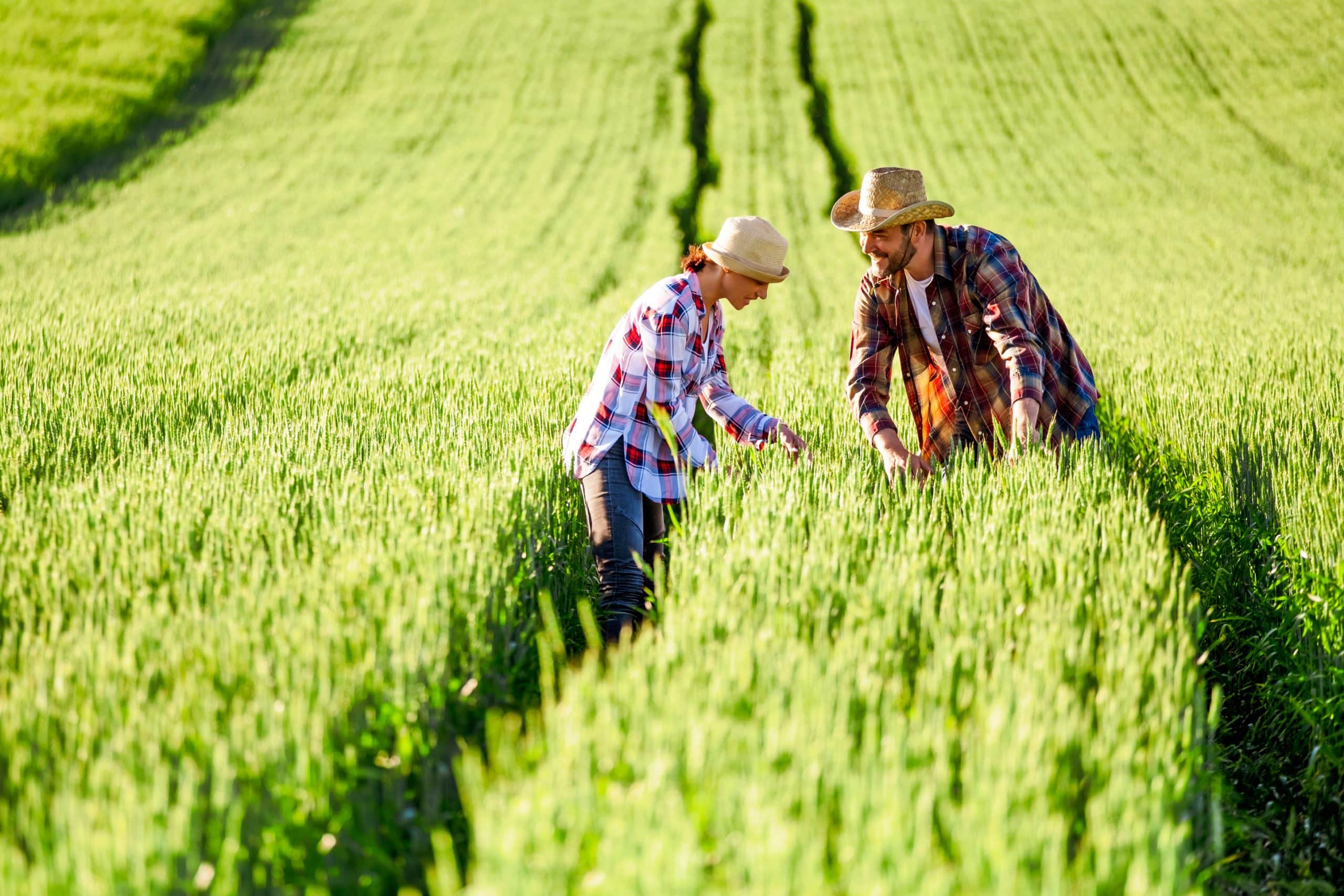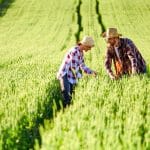In every realm of life, precision is a term that carries immense weight. The same is true in agriculture, where the effective use of data can have a transformative impact on the way farmers manage their fields. This article will delve into the world of precision agriculture, particularly focusing on the application of technology to optimize farming practices in the unique weather conditions of the United Kingdom.
Harnessing Data in Precision Agriculture
In recent years, an increasing number of farmers have begun to embrace the power of data in managing their crops. By equipping their fields with an array of sensors, farmers can gain a wealth of agricultural data. This data can then be analyzed to make informed decisions about crop management, from when to sow seeds to when to harvest.
Also to read : How to use MyImageGPT to generate images for your PowerPoint presentations?
These data-based systems can provide vital information about a range of variables, including soil conditions, water availability, and weather patterns. For instance, by monitoring soil moisture levels, farmers can optimize their irrigation schedules, applying water precisely when and where it’s needed. This not only improves crop yield but also conserves water, a win-win situation for farmers and the environment alike.
Adapting Precision Agriculture Techniques to UK Weather Conditions
Even with the most advanced technology at our disposal, one factor remains undeniably unpredictable: the weather. This is particularly true in the United Kingdom, where weather conditions can fluctuate dramatically – even over the course of a single day.
In parallel : What Are the Advances in Biodegradable Electronics for Reducing E-Waste?
Despite this unpredictability, precision agriculture techniques can actually be tailored to take the UK’s unique weather conditions into account. Analytics software can be used to crunch historic weather data, helping farmers to foresee weather patterns and plan accordingly. For instance, if the data indicates a high likelihood of heavy rain, farmers might choose to delay irrigation or harvesting activities.
Furthermore, real-time weather data can be paired with on-site sensors to make real-time adjustments. For instance, if a sensor detects a sudden drop in soil moisture levels, a water management system could automatically initiate irrigation, ensuring that crops receive the water they need despite the sudden change in weather.
The Role of Advanced Technologies in Precision Agriculture
In the realm of precision agriculture, technology is king. From data analytics tools to drone-based surveying systems, an array of technologies are revolutionizing the way farmers manage their fields.
In the context of the UK’s unpredictable weather, these technologies can be particularly beneficial. For instance, drones equipped with multispectral sensors can be used to monitor crop health even during periods of inclement weather. These sensors can detect subtle changes in plant health that might not be visible to the human eye, allowing for early detection of issues such as nutrient deficiencies or disease.
Similarly, GPS-based machinery enables precise application of fertilizers and pesticides, reducing waste and minimizing environmental impact. Even when weather conditions make it challenging for farmers to be out in the field, these technologies can continue to operate, ensuring that farming operations can continue smoothly.
Real-Time Field Data Management
Real-time field data management is another crucial component of precision agriculture. By continuously monitoring field conditions and adjusting management strategies in response to these real-time data, farmers can optimize their operations for maximum productivity and efficiency.
In the UK, where weather conditions can change rapidly, the ability to respond in real time can make a significant difference. For instance, if a sudden frost threatens to damage crops, a real-time data management system could alert farmers to the danger, allowing them to take protective measures.
Furthermore, real-time data can be used to optimize irrigation schedules, ensuring that crops receive the perfect amount of water regardless of weather conditions. By coupling this with predictive analytics, farmers can even forecast future water requirements, further enhancing their water management strategies.
The Future of Precision Agriculture in the UK
While the benefits of precision agriculture are clear, there is still much room for growth and innovation in this field. As technology continues to advance, it is likely that we will see even more sophisticated systems emerge, offering greater levels of precision and efficiency.
For instance, the advent of artificial intelligence (AI) and machine learning has opened up new possibilities for predictive analytics. By feeding these algorithms with vast amounts of agricultural data, it is possible to build models that can predict future weather patterns with remarkable accuracy.
This could have profound implications for farmers in the UK, where unpredictable weather is a constant challenge. By harnessing the power of AI, farmers could potentially anticipate weather changes well in advance, allowing them to adjust their farming strategies accordingly and maximize their crop yield.
The Integration of Remote Sensing and Machine Learning in Precision Farming
The world of precision farming is witnessing a technological revolution, integrating advanced tech, like remote sensing and machine learning, to deal with unpredictable weather conditions, particularly in the UK. Remote sensing, a technology that involves observing and gathering data about the Earth’s surface without direct contact, has shown tremendous potential in precision agriculture.
High-resolution satellite images, coupled with data from unmanned aerial vehicles (UAVs) and ground-based sensors, can provide a wealth of information about crop health, soil moisture, and other essential agricultural variables. Remote sensing technology can gather detailed, real-time data about weather conditions, helping to monitor and predict changes that could impact farming operations.
Machine learning algorithms can then analyse this data, identifying patterns and making predictions about future conditions. For example, a machine learning model could analyze years of climate data and predict the likelihood of a drought, heavy rain, or other extreme weather events. Farmers can then use this information in their decision making, adjusting their strategies to reduce risk and optimize crop yields.
Moreover, remote sensing and machine learning are at the heart of variable rate technology (VRT), a crucial component of precision agriculture. VRT allows for the varied application of inputs like fertilizers and pesticides based on the specific requirements of different parts of a field. This ensures optimal usage, reducing waste and minimizing the environmental impact.
Conclusion: Embracing Modern Agriculture Technology for a Sustainable Farming Market
In a data-driven era, the farming market is no exception. The integration of advanced agriculture technologies, particularly in the realm of precision farming, is leading to more efficient and sustainable practices. Dealing with the unpredictability of the UK’s weather conditions is one of the significant challenges farmers face. However, with precision agriculture techniques, farmers can adapt and thrive even in these challenging conditions.
Data analysis and decision making based on real-time field information are proving to be game-changers. Technologies like remote sensing and machine learning are providing farmers with the tools they need to meet these challenges head-on. The use of these advanced technologies is enhancing crop management strategies, aiding in predicting and responding to weather changes, monitoring soil moisture, and optimizing the use of resources.
There’s no doubt that the farming market in the UK, and the world in general, is heading towards a more data-driven, tech-enabled future. Continued research and development in this field, especially in machine learning models that can predict weather patterns, will further enhance the benefits of precision agriculture. As noted by countless Google Scholar research papers, the integration of these technologies will not only enhance the efficiency of farming practices but also significantly reduce the environmental impact.
In conclusion, to navigate the increasingly challenging weather conditions due to climate change, farmers in the UK need to embrace the potential of precision agriculture. The future of farming is here, and it looks more efficient and sustainable than ever before.












